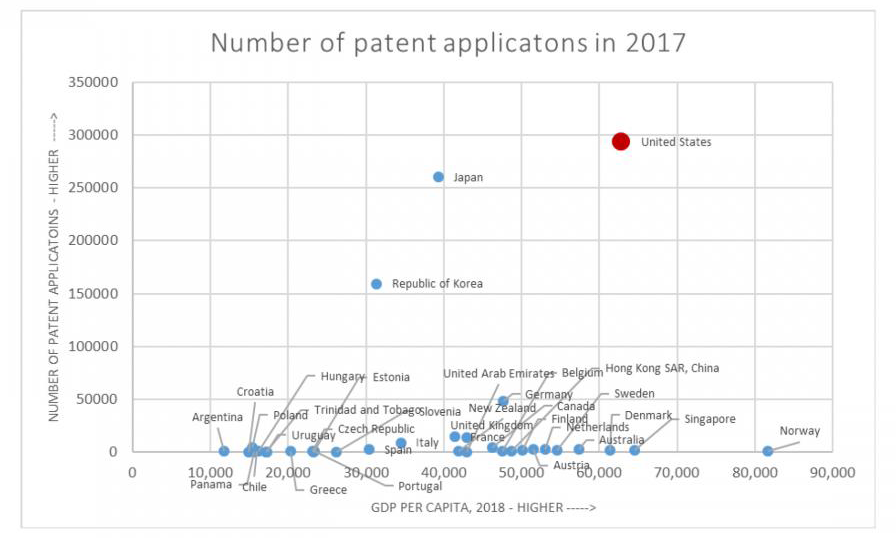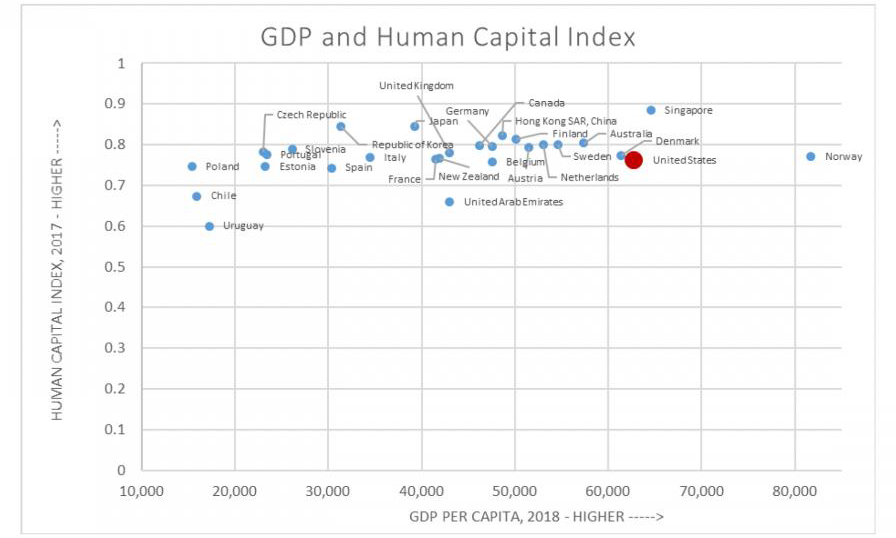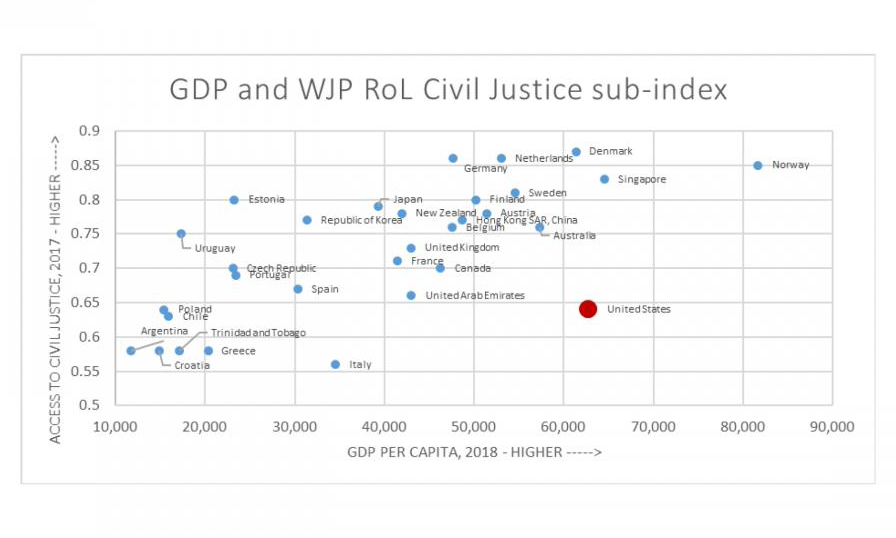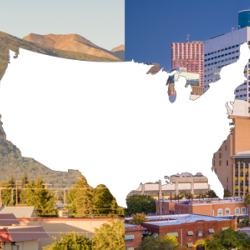National Study of the Needs for Justice in the U.S. and New Question Around COVID-19
The United States of America leads the world in many areas of democracy, technology, economy, and culture. Since 1871, the American economy has been the largest in the world. Currently it accounts for 23.6% of the global economy (IMF). The biggest digital companies have their home in the U.S.—Google, Microsoft, Apple, and Amazon, among many others. This leading position in creativity and innovation is well visible in the outstanding number of patents filled in the national patent and trademark office.

Another measure is the human capital index, which evaluates how much capital countries lose because of lack of education and health. Compared to the number of patents, the U.S. is clearly not leading in the same way on the human capital index. Its position is slightly below other countries with comparable GDP per capita, but is not too far away. It is on par with Denmark, Australia, Sweden, France, and other high-income countries.

Following that line of correlation between GDP and development, one expects to see the U.S. among the leaders in rule of law, justice, and access to justice. Using data from the World Justice Project, we map the Civil Justice sub-index against GDP per capita. The results are counterintuitive. If there was a linear relationship between GDP and access to civil justice, the U.S. should have been way above on the vertical axis—somewhere around Netherlands, Sweden, and Germany. However, on this indicator the U.S. is in a group of countries much less developed, at least in economic terms, such as Poland, Chile, United Arab Emirates, and Portugal.

Why is that? What holds back American citizens from accessing justice when they need it? In times of extreme uncertainty, such as the current COVID-19 pandemic, these are critical questions.
Looking for answers, IAALS and HiiL will ask a large sample of the U.S. population about their justice needs. We want to know what the legal problems that young and old, rich and poor, and urban and rural Americans have to deal with. What are the journeys that they take to resolve these problems? Are civil and criminal legal problems adjudicated or are there are other strategies towards resolution? How fair are the resolutions that people achieve? And a new question in light of the current crisis—which legal problems do people anticipate experiencing as a result of the COVID-19 crisis?
Stay tuned. The results will be available in the fall of 2020.





